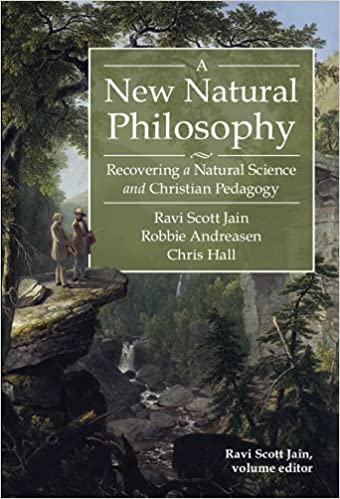The Liberal Arts Tradition: A Philosophy of Christian Classical Education (Revised Edition)
The Liberal Arts Tradition: A Philosophy of Christian Classical Education introduces readers to a paradigm for understanding a classical education that transcends the familiar 3-stage pattern of grammar, logic, and rhetoric. Instead, this book describes the liberal arts as a central part of a larger and more robust paradigm of classical education that should consist of piety, gymnastic, music, liberal arts, philosophy, and theology. The Liberal Arts Tradition also recovers the means by which classical educators developed more than just intellectual virtue (by means of the 7 liberal arts) but holistically cultivated the mind, body, will, and affections. This is a must-read for educators who want to take a second big step toward recovering the tradition of classical education.
More info →A New Natural Philosophy: Recovering a Natural Science and Christian Pedagogy
Aristotle said that philosophy (the love of wisdom) always begins in wonder―wonder that often is kindled as we gaze upon the astonishing world around us. Yet today our science classes too often neglect the wonder evoked by the natural world and instead occlude and stifle it. How, then, can our science classes reconnect wonder to nature, wonder that will lead to wisdom, work, and worship? This book seeks to answer that question by helping recover the “natural” in natural science, the wisdom in “philosophy,” and the worship that flows from wonder.
Applying C. S. Lewis’s vision of “a new Natural Philosophy” and the deep insights of Christian thought to the understanding and pedagogy of natural science, the authors suggest a new paradigm that reveals God’s hand and purposes in the foundations and methods of science and allows students to see its sources, ideas, and conflicts more clearly. This book addresses a holistic curriculum, an incarnational pedagogy, and an interdisciplinary approach to teaching natural science in K–12 classrooms. It describes how three teachers have effectively implemented these ideas at two different schools. The authors share lessons for teachers on subjects ranging from gardening to biology to physics and for age ranges from pre-K to high school or even early college. Addressing big-picture discussions as well as supplying practical items, such as lesson plans, curriculum outlines, and book lists, this book will both challenge and reward those who have wondered how to think more deeply about Christian faith and natural science.
More info →



